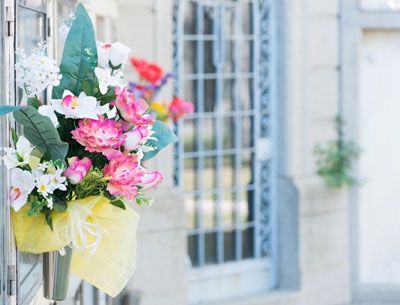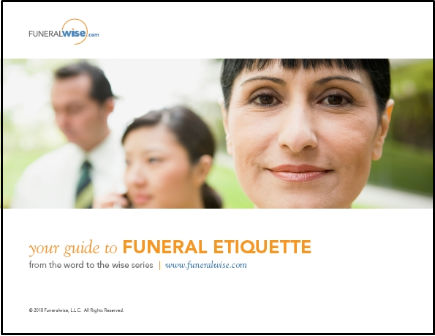How To Personalize a Funeral or Memorial Service
Creating a Service That Reflects a Complete LifeMemorial services and funerals serve a number of purposes. They give us the chance to say goodbye and offer an opportunity for friends and family to gather together to start the journey through the grieving process.
In the end, the key reason most of us go to the time and expense of holding a funeral or memorial service is that we want to honor the life of the person who has died.
Historically, when it came to planning a funeral, we turned to religious traditions for a framework. While religion is still an important consideration, these days, many people look for secular ways to reflect the person’s complete life. That means most modern funerals incorporate remembrances of hobbies, interests, and passions that are outside of religion.
Modern funerals and memorial services often include a Celebration of Life. These unique services are designed to offer a joyous commemoration of the deceased’s impact on the people around them.
Remember, you can still hold a service even if you have made the decision to use cremation as your final disposition. In fact, you actually have more flexibility in planning a cremation memorial service than you do with an in-ground burial. Traditional in-ground burial usually means that the funeral needs to take place within a certain timeframe. With a memorial service, you do not have that constraint. That’s not to say that you can’t have both a funeral and a memorial service but most people opt for one or the other.
Learn about cremation
When planning a funeral or memorial service, remember that you can incorporate whatever elements you feel are important. If that means including traditional religious components along with secular ones, that’s perfectly fine. If the service is personalized and respectful, it will no doubt be “A Good Funeral.”
Personalizing a Funeral or Memorial Service
Perhaps the most challenging thing about personalizing a funeral or memorial service is that your options are nearly unlimited. In fact, attend a funeral today, and you are likely to see a photo display, a memorial wall, pieces of the deceased’s collections, or some other tangible collection of personal artifacts. Each of those things can bring a unique and touching element that helps those attending the service remember the deceased. But a truly personal service will require a little planning.
Steps to personalizing a funeral or memorial service
- Slow Down
It’s easy to get swept up in the flurry of important activities that naturally follow a death. There are many details to take care of. It’s important to remember that you don’t have to do it all at once. Take a deep breath and keep your objective in mind. You want the service to honor the person you have lost and carry a bit of his or her personality. So don’t rush yourself. It really will be ok.
- Think About the Person
Undoubtedly, your loved one is already on your mind. As you are thinking about him or her, consider what made that person unique. What did she enjoy doing? What was he passionate about? What made her unique? What would he have wanted in a service?
- Talk with others:
Take a little time to talk with other people who were close to the deceased about what they think was important about the person. Along the way, gather memories that are special to those who were close to the person.
- Talk to your officiant:
It is important that you let your clergy or other officiant know that you want to make sure the service is personal. This person can be a good resource for determining what elements of the service may be the best candidates for adding a personal touch. Don’t hesitate to include other family members in the discussion. Collaboration can be a very good tool when you are trying to personalize a funeral. Check out our funeral celebrant/officiant directory
- Consider the elements of the service:
While every service is unique, there are common elements essential to creating a personal service. Among these are the eulogy, the music, and the readings.
- Consider the surroundings:
Whether you are holding the service at a funeral home, a church, or some other venue, you can incorporate personalized elements that will invoke the memory of your loved one. Among the items that can be used are photos, flowers, artwork, or items from the deceased’s personal collections.
- Design the Order of Service (Funeral Program):
A printed “Order of Service,” or program, is commonly distributed at a funeral. These provide fertile ground when you are trying to personalize a funeral. Photos, poems, biographies, scriptures, and quotations can all offer tribute to and reflect the personality of the deceased. Many templates are available online for do-it-yourselfers. Your funeral director can also help you produce the program, or you can turn to a professional.
- Remember the Funeral Reception:
From food selections to table decorations, the funeral receptions offer many opportunities for personalization.
- Ask for help:
Trying to personalize a funeral or memorial service can be daunting, especially if you are trying to do it while you are grieving. Don’t be afraid to ask for help. Besides family and friends, you can turn to professionals such as your funeral director, your clergy, or a funeral celebrant.
Having a Home Funeral
In recent years, we have seen growth in the area of home funerals. For many people, conducting the service in the family home is the ultimate in personalization. For more information on what it means to have a home funeral, visit our Home Funeral Guide page.





